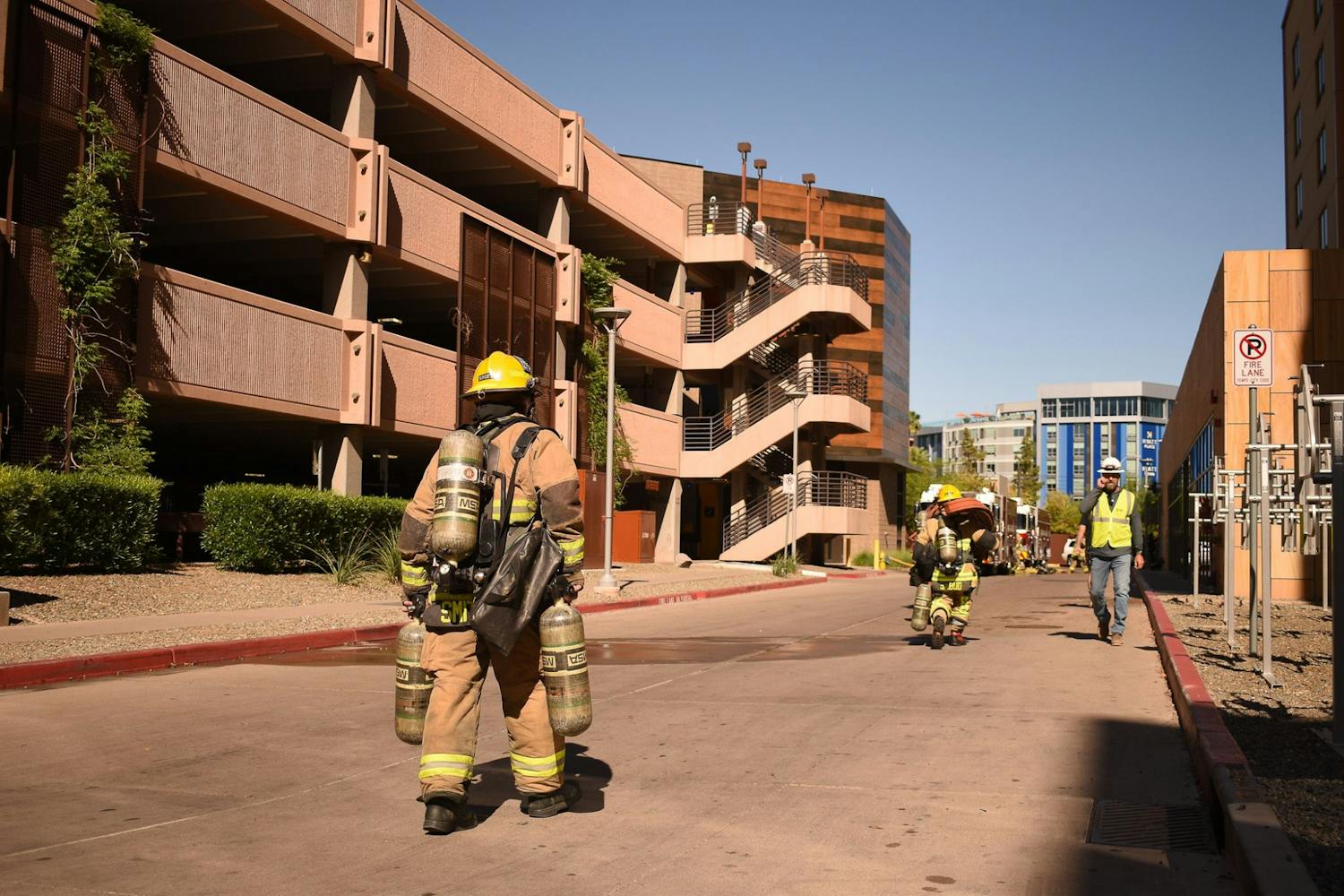Economics freshman Rick Brody knew ASU students pay fees to cover the Internet and gym. However, he doesn't use all of the services provided by these fees, and he said he wishes some of them were cheaper.
At ASU, students pay fees to cover the cost of things like Wi-Fi, building maintenance and the health centers. Brody said he understands the fees are in place for the benefit of all the students, but he doesn’t want to pay them.
"I'm a broke college kid who would do anything to save money," he said. "Fees are necessary, but, selfishly, I would like not to (pay some of them)."
Melissa Pizzo, director of Financial Aid and Scholarship Services, said the fees students pay are typically mandatory, because it would be difficult to separate the benefits for students who pay the fees and those who do not.
"I think the intent behind those mandatory fees is to provide access and availability to students for what those (fees) help cover," she said. "If there are resources they should be accessing because of those fees, then they should certainly take advantage of them."
Students are required to pay six mandatory fees that come to a total of $259.
Aside from these fees, students may be required to pay special fees related to their program or major, iCourse fees, special class fees or late registration fees.
However, the six fees all students are required to pay are the Recreation, Technology, Student Services Facility, Health and Wellness, Student Programs and Financial Aid Trust fees.
Pizzo said these fees provide highly beneficial services to students that they should take advantage of and use.
"Those are funds the University receives to make services, facilities and activities available and open to all students,” she said. "There is nothing to exclude students from access to those facilities or resources provided."
Purpose of Fees
The $25-per-semester Student Programs Fee allows student organizations to apply for funding to pay for club events or resources, Pizzo said. Student governments on each campus disperse the money.
"(The return of funds) is not on an individual basis, but those funds go to help support our student organizations throughout the University, as well as larger programming," she said.
ASU uses the $50-per-semester Technology Fee to pay for Wi-Fi, computer labs or software students need to use in their programming.
"We have a lot of options available for our students in our computing facilities," Pizzo said. "They can log in and use what can be some common or very expensive programs needed for their major."
In March 2010, the Student Services Facility Fee was passed by individual student governments as a way to pay for construction or renovation of new student recreation centers across all for campuses. The $75-per-semester fee goes to paying off the construction costs accumulated by the University, Director of Tempe Recreation Center Tamra Garstka said.
Another fee that supports the student recreation centers is the $25-per-semester Recreation Fee, though this one is much older. It was enacted in 1986 for the Tempe campus and was adopted by the other three campuses in 2008 at the "request of students for support of recreation programming," ASU spokeswoman Julie Newberg said in an email.
Newberg also said the students supported a new Health and Wellness Fee in 2009. The fee, which costs $40 each semester, in part supports the Health Centers at all four campuses and outreach programs.
The sixth fee students pay is the Financial Aid Trust Fee. It is a $44-per-semester fee that is matched by the state government to help students in need pay for college, Pizzo said.
Each fee, she said, supports programs that students either use on a regular basis or should use.
"There are a lot of great things the University provides to students, that if they take advantage of the staff and the resources available they can get a lot more out of the university and make themselves more marketable," Pizzo said.
Approving Proposals
Of the six mandatory fees all students pay, four have been implemented since the fall 2007 semester, when the technology fee was implemented.
Each fee proposal goes through a specific and thorough administrative review process before it is proposed to the Arizona Board of Regents, Pizzo said.
"(They) must offer a detailed description of why they are charging the fee, why they need it and then what resources will be available back for the students," she said.
After the University has reviewed the fees and what they will do, they are presented to the Regents for approval.
"With the mandatory fees there are specific steps we go through for approval at the Arizona Board of Regent's meetings," she said. "If a college or other unit is looking for a fee, depending on the threshold of the fee those also need to go through the Board of Regents as well."
According to ABOR's Policy Manual, universities must seek Board approval for all mandatory fees, program fees and fees more than $100.
Program fees are charges for extra resources, materials or requirements that students in certain colleges, schools or majors must pay because these things are necessary only for their courses.
The Board holds an annual meeting for students to speak out on the fee or tuition proposals and changes, ABOR spokeswoman Katie Paquet said in an email.
"Each year, the Board of Regents holds a tuition hearing, which is a formal opportunity for students to comment on any proposed increases to tuition, mandatory fees and program fees," she said. "The Board also encourages and universities routinely engage in ongoing dialogue with the student body about tuition and fee proposals."
This year's meeting will be held March 25 and will be a video conference so students from all three universities can participate and express their concerns, she said.
Student Reactions
ASU students don’t know much about the money they pay each semester in fees either out of pocket or with scholarships. There are also some common misconceptions that students can opt out of some of the fees if they do not use these services.
Biochemistry sophomore Taylor Anglen said he does not know much about the money he pays in fees to the University.
"It probably should bother me, but it doesn't," Anglen said.
Physics freshman Alesha Palmer said the only thing she knew about her fees when she paid for her first few semesters of tuition was that they were expensive.
"It was a lot," Palmer said. "I knew I had fees for a class, because it was an internet hybrid class, and there were some other fees."
She said she has used the recreation center a few times and has not used the health center at all.
"I would (like some of that money back) because it's just wasted money that could have gone to something else, like books," Palmer said.
Reach the reporter at sgslade@asu.edu or follow her on Twitter @shelbygslade



